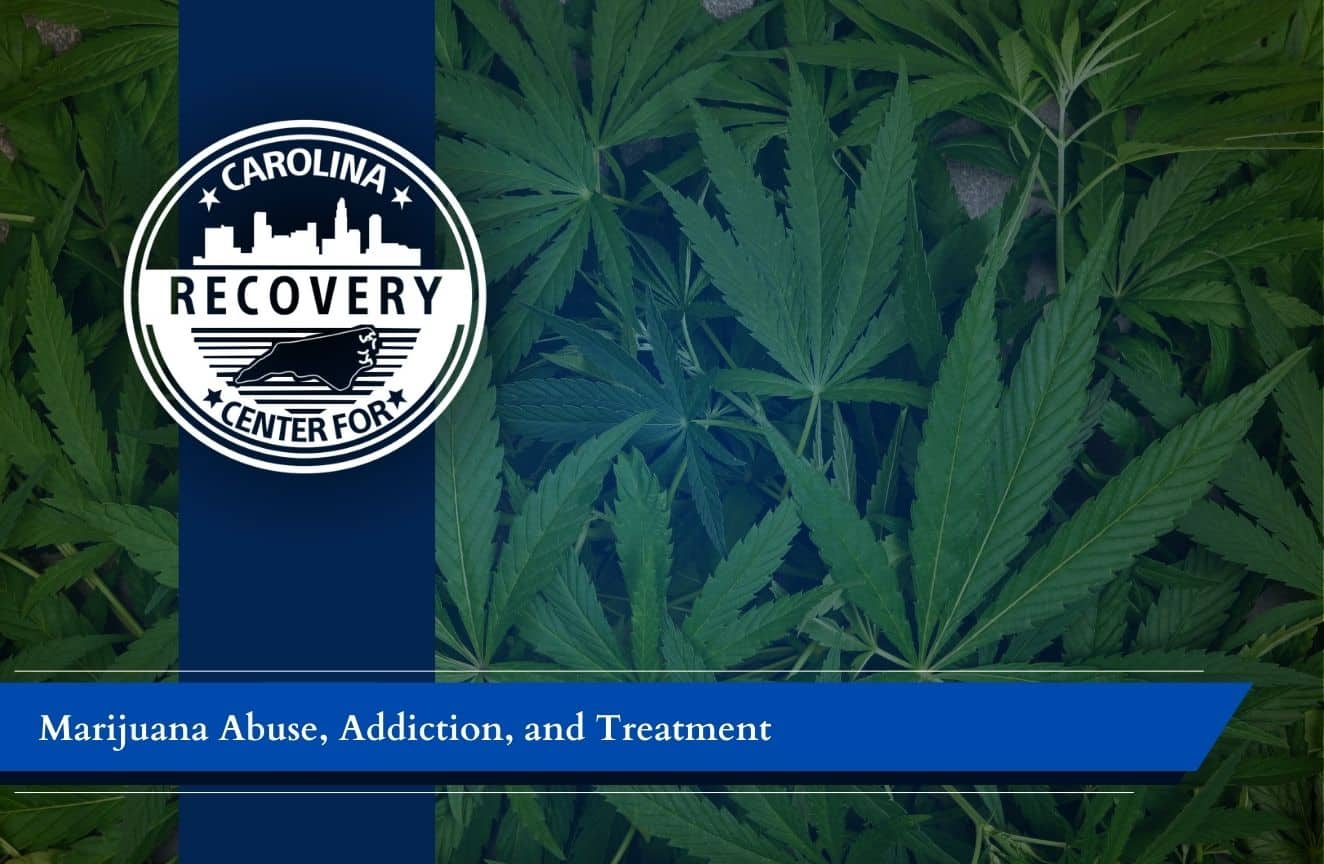


If you or someone you love struggles with marijuana abuse, you are not alone. Treatment can help you gain control over your substance use. It can give you the skills and resources to live a healthier, sober lifestyle.
It can be challenging to quit using marijuana. Some people who use marijuana develop symptoms of addiction. Others develop a condition called marijuana use disorder.
This article will explore marijuana abuse and addiction. You will learn how to find treatment for substance use disorders and what to expect in addiction treatment programs.
Contact the Carolina Center for Recovery specialists to explore our treatment programs or find support during addiction recovery.
Marijuana is a plant that contains psychoactive chemicals. People eat, smoke, vape, or drink marijuana products.
The active compound in marijuana is THC. Ingesting THC can cause a range of side effects, including:
Marijuana and THC products are legal in many areas of the United States for both medical and recreational use. As more people have legal access to marijuana, more people may use it and experience complications. In 2021, an estimated 52.5 million people used marijuana.
Marijuana use is on the rise among young people. An estimated 8.3% of 8th graders and 30.7% of 12th graders report using cannabis. This group is more likely to vape, drink, or consume THC products rather than smoke marijuana. There are many reports of teens becoming sick after consuming products with high levels of THC.
Even though marijuana is legal in some areas, it is still illegal in many states. Many addiction experts consider marijuana to be the most commonly used illicit drug.
People who use marijuana frequently may develop signs of addiction. They may have a hard time quitting when they want or experience withdrawal effects if they stop using it.
Heavy marijuana use increases the risk of long-term medical and mental complications, including schizophrenia and addiction. People may experience new or worsening symptoms of a mental health disorder.
It is essential to seek treatment for marijuana abuse as soon as possible to reduce the risk of complications.
Prolonged periods of marijuana use can lead to signs of addiction. People may develop marijuana use disorder after abusing marijuana for a long period.
Addiction can change a person’s appearance, behavior, and emotional well-being.
Some signs of marijuana use disorder include:
People who abuse marijuana for long periods may develop symptoms of physical dependence. They may face physical or psychological problems related to their substance use.
If you live with marijuana addiction, you must seek treatment. During treatment, you will get the support and treatment you need to stop using marijuana and avoid relapse.
Living with marijuana use disorder puts you at risk for serious long-term problems with memory, attention, and learning. Treating marijuana addiction as soon as possible is essential.
There are inpatient and outpatient addiction treatment options. Before beginning treatment, a medical or addiction specialist will evaluate your needs and recommend a level of care.
Here is an overview of what to expect in a marijuana addiction treatment program.
If you have developed symptoms of physical dependence on marijuana, you may experience withdrawal symptoms when you quit using it. Common withdrawal symptoms include:
While your symptoms may not be dangerous, they can make you feel miserable. During detox, your treatment team will monitor your symptoms. You may receive medications to help you manage pain, insomnia, and other uncomfortable symptoms.
Marijuana detox can be challenging. The care you receive during detox will prepare you to start a comprehensive treatment program.
After spending several days following a detox plan, you may start to feel better. After detox is complete, you may begin to participate in holistic treatment.
Your treatment plan may include:
During treatment, you will identify the roots of your substance use and gain the skills to avoid relapse. You will find support during rehab and develop an aftercare plan to keep you engaged in recovery afterward.
If you or someone you love struggles with marijuana abuse or addiction, you are not alone. Comprehensive, compassionate treatment is available at the Carolina Center for Recovery. Contact our admissions staff now to get started.